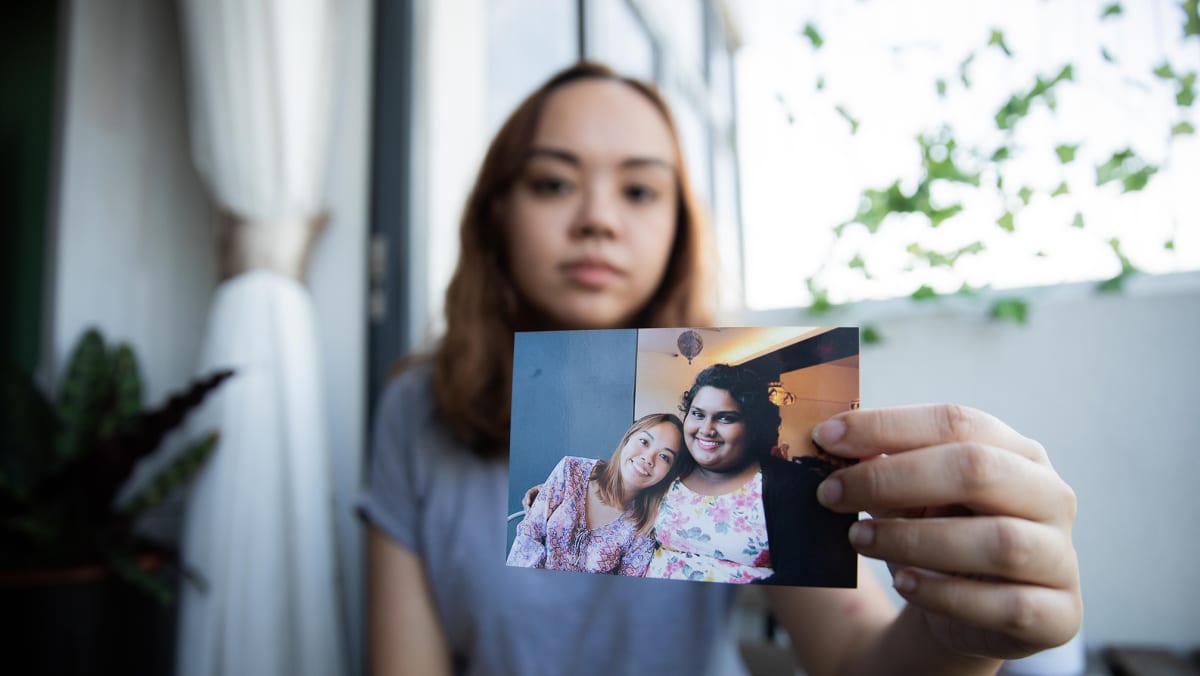SINGAPORE — When my best friend died in mid-2017, a day after she turned 24, I was a month away from starting my first full-time job upon graduating from university.
Personally, distractions in the form of work or other pursuits helped me only to a certain extent.
I had to allow myself time to remember her and be sad, and also be willing to tell the people around me about how I was feeling.
For example, I would take a step back if I felt that wedding planning or chasing an assignment at work was getting overwhelming — especially around her birthday or Deepavali, which used to be “special” times we spent together.
I would turn to a cherished hobby or even just talk to others about my thoughts and struggles.
My best friend’s sister and two close friends, who were also relatively new to the workforce when she died, formed a close-knit support group of sorts and I was part of the circle.
We share our adulting problems and meet often in person, which has been really important to us in learning to cope with her death.
One of these friends said that he has learned it’s all right not to know where he’s heading. “You don’t have to move fast from point A to point B but just as long as you keep moving, it’s all right,” he said.
Even having a furry companion may help. After my husband and I adopted two cats last year and a third earlier this year, they have brought so much joy in our lives.
When I was alone at home one evening and suffered a crying jag, they sat beside me and made me laugh by sticking their noses in my face. It may sound trivial but that truly helped.
Grief can come in many different forms as well. There is no “typical” form of it.
Losing a pet or ending a relationship, for example, can also be painful and should never be negated.
As a court reporter, I have read victim impact statements from those who suffer sexual abuse, for example. That carries its own form of grief.
It’s important to remember that as we grow older, loss will be our reality as our loved ones also age.
My last living grandparent, as well as my aunt who was also my godmother, died last year. The sorrow came back in waves, albeit in a different way.
HOW OTHERS MAY HELP
Most people who grieve are often inundated with offers from people who extend their sympathies and support in the first few months but long after that, they will continue to need support.
After my best friend died, her older sister began reaching out to people who similarly lost loved ones. She also formed a Facebook group where they can support each other, which now has more than 100 members. They talk about their feelings and share advice on how to handle life.
She told me that one of their biggest pains was not just dealing with their loss, but dealing with relatives and friends who were insensitive to their feelings.
For instance, a woman asked my late friend’s mother, point blank, which of her daughters had died. It shocked them and made them realise how others may not know how to handle this.
Just practising basic etiquette is important, my friend’s sister said.
It’s totally all right to not know the right things to say. Just being there or saying you’re sorry can be incredibly helpful.
Something else I learnt during the grieving process was that it is usually awkward for people who want to comfort you. Don’t let this deter you from reaching out — many of them just want to help.
Ultimately, the grief will never end but I have finally accepted that my best friend’s gone. Not thinking about her every day doesn’t mean I will lose my memories of her either.
Sometime after I began dating my then-boyfriend (now husband), I promised her that if we ever tied the knot, she and our other close friend could plan the wedding. She would be a bridesmaid and godmother to our children, if we ever decided to have them.
When she died, all these plans fell on the wayside.
I put them out of my mind as the months went by, but was completely surprised when her sister took “her” to my wedding — in the form of her favourite Dumbo plush toy.
My husband had asked her family to take something of hers to the wedding, knowing I was torn up about not having her there. This gesture really helped me to see that she would forever be in my heart.
I also put up keepsakes of her when we moved into our new marital home — most prominently, a photo of the last lunch we had for her birthday before she passed on.
I don’t think I can ever truly “move on” and there is really no need to reach this so-called end goal, but I’ve definitely learnt to live with the grief and even find some positivity out of it.
And whenever I come across something that reminds me of her, like songs on the radio by Shakira (one of her favourite artistes), I’ll smile instead of tearing up.
WHERE YOU MAY GET HELP
Talk Your Heart Out: https://talkyourheartout.com/
Samaritans of Singapore: 1800-221-4444 (24 hours)
Singapore Association of Mental Health: 1800-283-7019 (Mon-Fri, 9am-6pm)
Emergency Helpline (Institute of Mental Health): 6389 2222 (24 hours)
Care Corner Counselling Centre (Mandarin): 1800-353-5800 (10am-10pm)
Tinkle Friend: 1800-274-4788 (Mon-Fri, 9.30am-5pm)
ABOUT THE WRITER
Louisa Tang is a journalist at TODAY, where she covers the court and crime beat.


